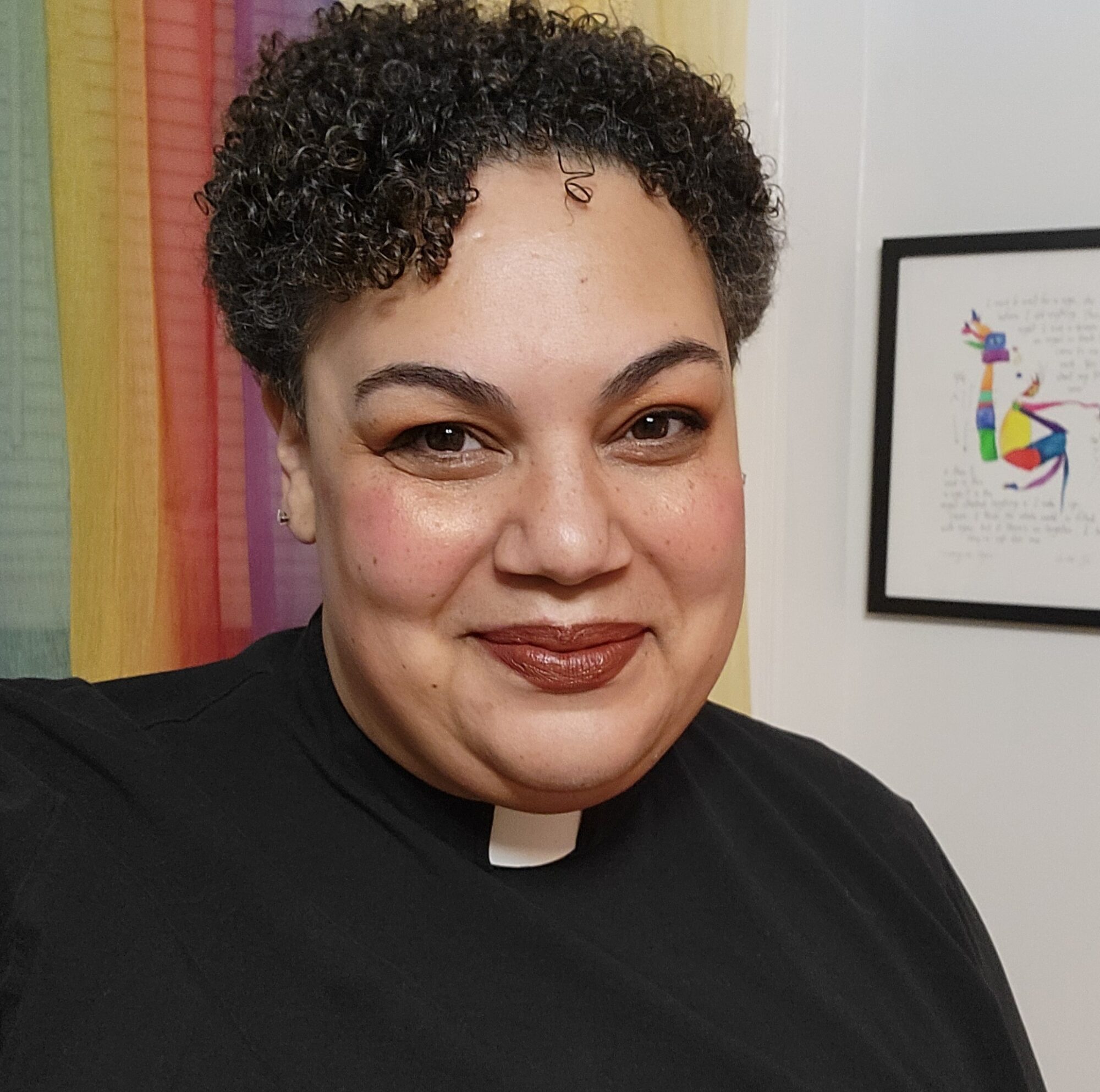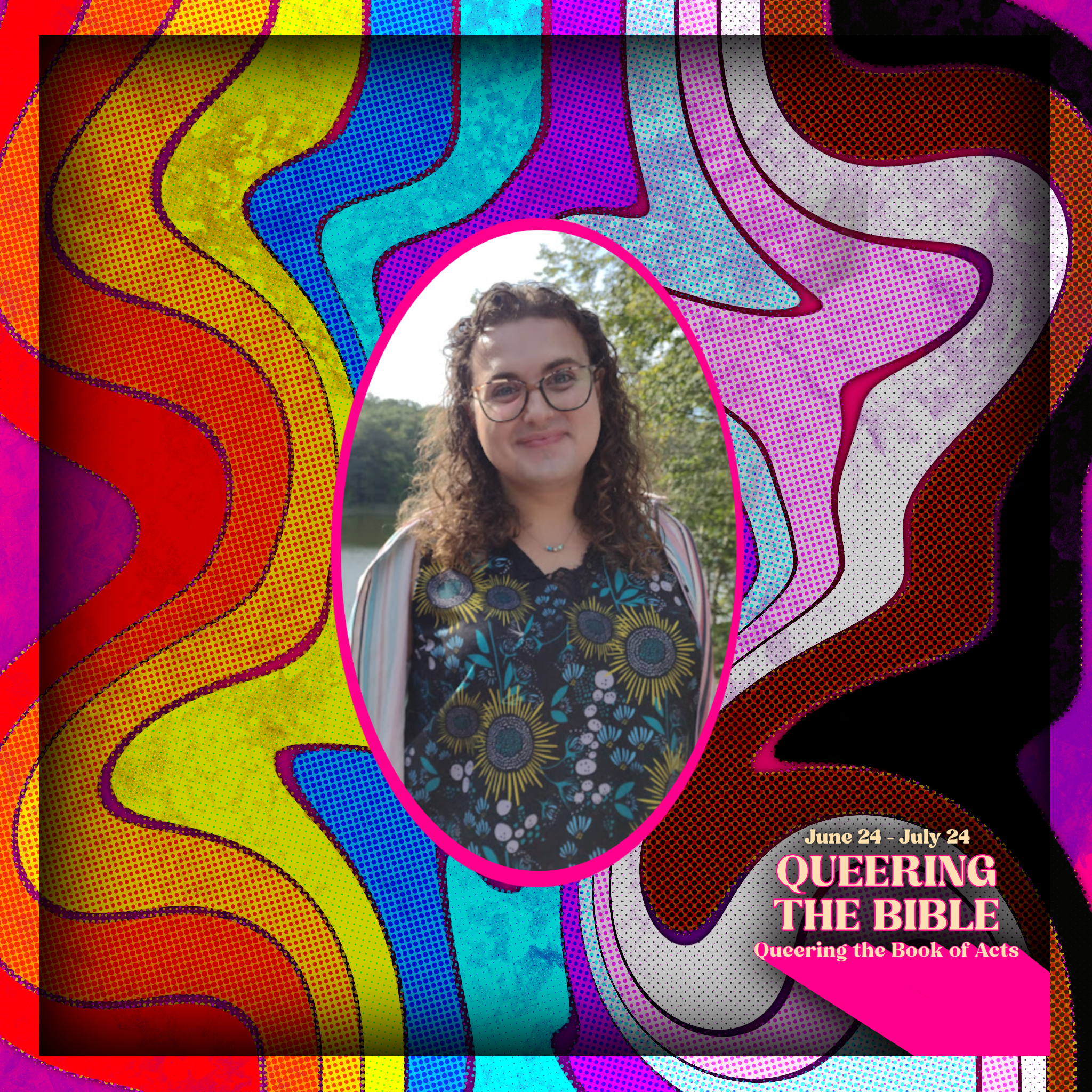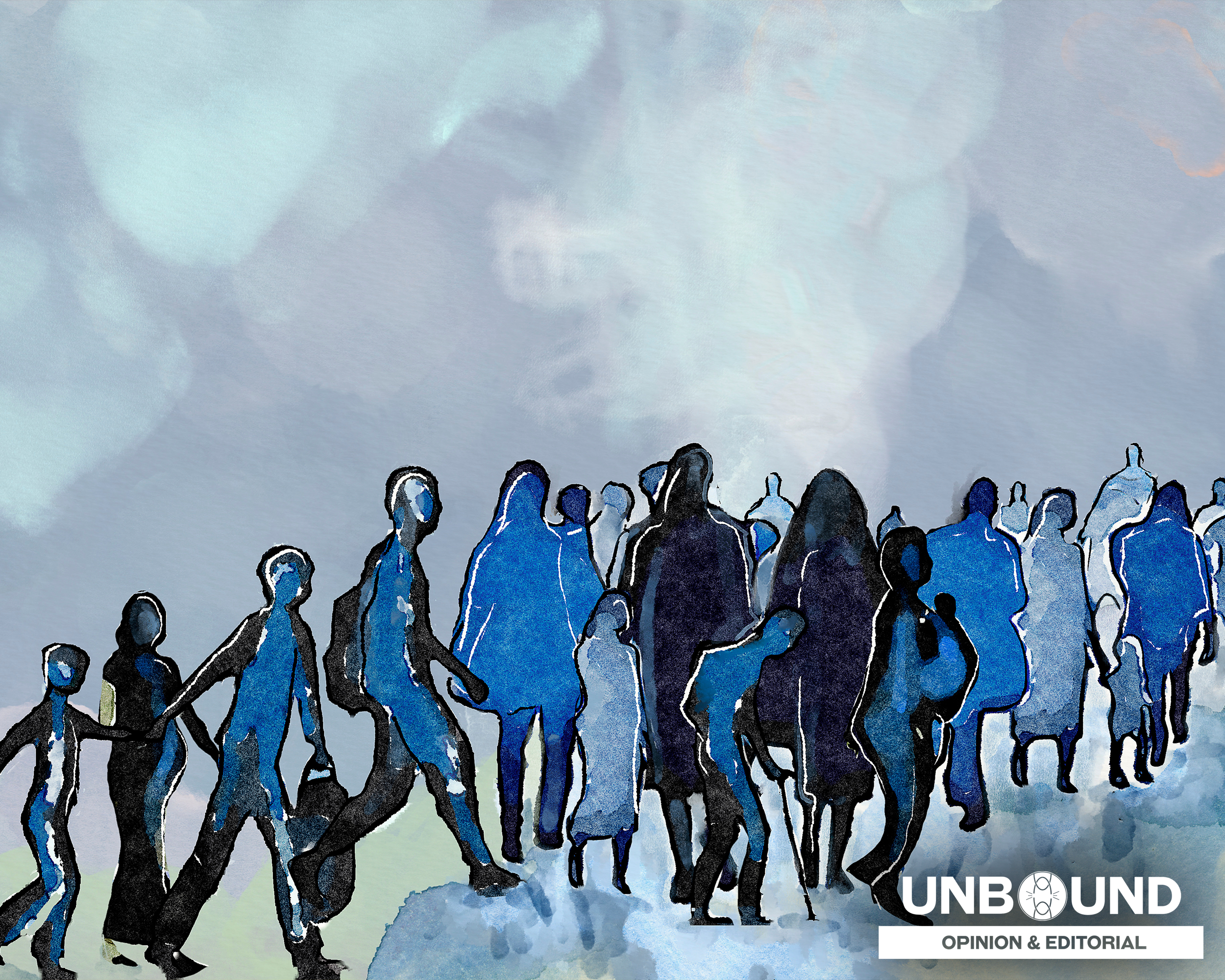My queerness thrives when holding seemingly binary or unlike realities in tension. I am simultaneously the stoic and hardworking descendant of German pastor-farmers and the lioness Creole granddaughter of opportunity-embracing formerly enslaved ancestor-guardians. I am a circle skirt swirling lesbian femme and adrenally intersex they/them protector. “Do I contradict myself? Very well then, I contradict myself. I am large. I contain multitudes.” – (Queer Poet-Saint) Walt Whitman
This Pride season I experienced the tension of preaching at an interfaith Pride service in the public square, speaking and teaching on the call for Christian faith and queerness to be celebrated in geographic and spiritual unity. Days before, I held space for queer beloveds grieving harmful interactions with law enforcement and civic officials, sparring LGBTQIA2S+ organizations with “overlapping territory” and yes, self-proclaimed Christian clergy, at multiple Pride festivals. How do we call for unity when we so frequently struggle to practice it, even within our own community which we persist in decolonizing from the evil spirits of racism, trans and bi-phobia, classism and other tools of the oppressor, as (Queer Poet-Saint) Audre Lorde named them? How do we embody grace and the co-creation of Beloved Community with the Holy Spirit and honor Pride as the public protest it originated from?
In Acts 4, we experience Peter and John engaging in active dialogue with temple priests, law enforcement, marginalized and excluded members of their own cultural community, speaking with love and respect AND a message that is not codified or tailored to the receiver to increase the likelihood of favorable result. “In Jesus there is resurrection from the dead.” (Acts 4:2) “There is salvation in no one else, for there is no other name under heaven given among mortals by which we must be saved.” (Acts 4:12) Peter and John refute an attempt at forced binary thinking by not addressing questions of procedure and practical authority. Rather than be pulled into a point-meets-point argument of apologetics, Peter and John transcend into a queer theological moment of celebration and declaration. They are arrested and made to testify in their own defense, but reject defensiveness for repeated witnessing to the glory of what Jesus has done and can do. They surrender ego and embrace the collective healing made possible in, and only through, Jesus.
Our disciples could have explained the details of a faithful person’s miraculous healing, using the best medical language and understanding of the time, to justify its legitimacy. They could have chosen to uplift the financial and work force benefit of increased health for community functionality. An intellectual debate to thrill the educated mind with references to historical documents and cultural practices might have additionally engaged and sympathized the detractors. While seeking to eliminate/mitigate bias against LGBTQIA2S+ people in the church, I have used all of these tactics to intentionally appeal to other types of bias workshop participants that are more beneficial to my cause. We return again to holding tension as fundamental to queer theological discussion. I also name the fundamental limitations of harm mitigation or hesitant and “you catch more flies with honey” allyship and advocacy work not grounded in the belief that Jesus can perform miracles. As Acts 4 progresses, Peter and John are released and return to their companions to receive prayer, not for a legislative tweak to a system still thoroughly steeped in supremacy, but for Jesus “to do whatever your hand and your plan had predestined to take place. And now, Lord, look at their threats, and grant to your servants to speak your word with all boldness, while you stretch out your hand to heal, and signs and wonders are performed through the name of your holy servant Jesus.” (Acts 4:28-30)
Rather than asking for the proverbial seat at the table, the apostles create a paradigm of feeding everyone where they already are – both with gospel words and practical support via the equity based distribution of resources. When the apostles preach with boldness and power, the natural response of the crowd is to be “filled with great grace” (Acts 4:33) and share among the diverse crowd with each, according to need. Counter-cultural and radical revolution contrary to the status quo is embodied by embracing the healing power of community without forcing assimilation, practicing inclusive accessibility that respects differing experiences and needs. The protest IS the practice of authentic unity, not centered in ego, but in the shared experience of Jesus’ miraculous and all-powerful love above all earthly systems and divisions.

Rev. Carla Christopher (she/they) is co-chair of the Commission for a Renewed Lutheran Church and a member of the churchwide Evangelism Team. They also serve as Assistant to the Bishop for Justice Ministries for Lower Susquehanna and Delaware-Maryland Synods. A former Poet Laureate and the co-founder of York Pride, Carla lives and loves in Central Pennsylvania.



Unbound Social